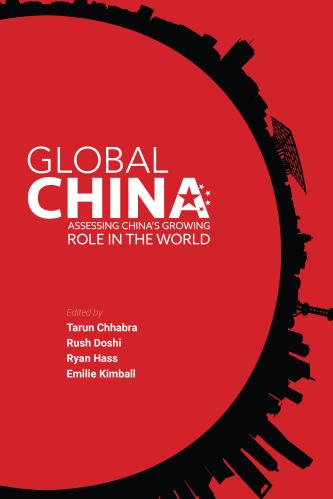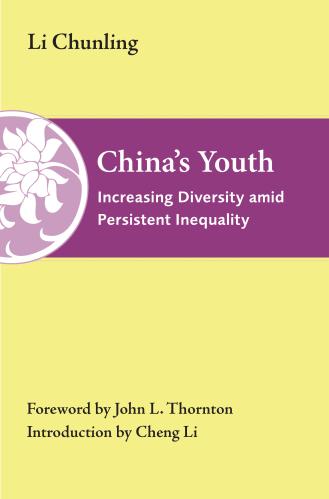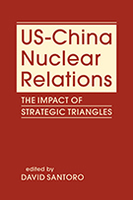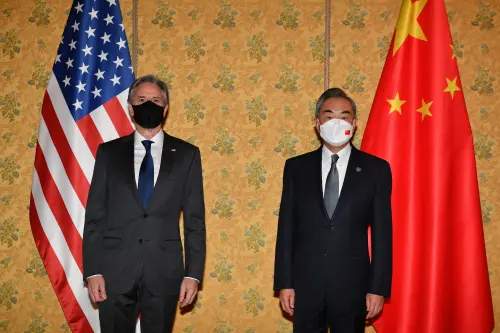The Biden administration has prided itself on breaking with the policies and practices of its predecessor, which did untold damage to U.S. foreign policy and domestic tranquility. But curiously, when it comes to the greatest foreign policy challenge facing the United States — how to deal with the rise of China — Biden’s team have continued and mimicked Trump’s destructive approach. This has prompted glee among departed Trump officials, who proudly declare themselves innovators and the Biden administration unimaginative and dutiful implementers.
Biden officials begin their defense of their China policy by citing supposed strong bipartisan support for their tough line. When asked to distinguish their China strategy from their predecessor’s, they say little more than that they favor a multilateral approach of rallying allies, in contrast to the unilateralism of the “America First” practitioners.
Yet, it is intellectual laziness to justify policy on the basis of bipartisanship rather than formulate one based on national interests. In no other instance, e.g. policy toward Iran, Ukraine and Russia, NATO and the EU, has the administration sought to duplicate Trump policy. Rather, Biden’s team has figured out its own approach, and then tried to sell it to both parties.
DEMOCRATS LIKE CHINA MORE THAN REPUBLICANS DO
What’s more, the pretense of bipartisanship is a stretch. A recent poll by the Chicago Council on Global Affairs showed large gaps in views of China between Democrats and Republicans:
- 42% of Republicans but only 17% of Democrats view China as an adversary.
- 67% of Republicans but only 39% of Democrats view limiting China’s global influence as an important goal for U.S. foreign policy.
- 73% of Republicans favor restricting the exchange of scientific research between the U.S. and China and 72% favor limiting the number of Chinese students studying in the U.S. By contrast, 66% of Democrats oppose limits on Chinese students and 59% oppose limits on scientific exchanges.
- 83% of Republicans favor increasing tariffs on imports from China. 45% of Democrats do, while 50% oppose.
The pursuit of a so-called “bipartisan” policy toward China in practice has been the adoption of the Trump policy, at the expense of grassroots Democratic views. It is easy to be bipartisan when you simply surrender to the perspective of the opposing party.
How Trump fanned the flames
What has this meant in practice? The Trump administration preached a zero-sum policy of confrontation with China. Speeches by its senior officials depicted a nation of intellectual thieves and economic predators that had advanced in the world through treachery and cheating. They suggested cooperation with such a regime was impossible, and all but called for regime change in China as necessary for coexistence. They saw a China whose DNA was an urge to domination, and contended that 45 years of complex interaction with China since Nixon was appeasement. They viewed international diplomacy as a chessboard in which every country became a zone of combat against a Chinese adversary. They undertook a strategy of “decoupling” from China — high tariffs contrary to U.S. legal obligations, an FBI “China Initiative” that has been wielded as a blunderbuss against Chinese Americans and Chinese conducting research at American universities, and shutdown of exchange programs like the Fulbright program and Center for Disease Control cooperation with Chinese counterparts. They also began to dismantle the foundations of America’s four-decade-old “one China” policy (that is, the U.S. acknowledgment of the Chinese position that Taiwan is part of China) and the unofficial character of our relationship with Taiwan that, along with military deterrence, has underpinned peace and stability in the Taiwan Strait for 50 years.
The Biden administration generally has kept intact these Trump policy approaches, albeit with less incendiary language. They have echoed the Trump administration in declaring the era of engagement over. In essence, they argue that they can fight the adversary more effectively than Trump could.
What Biden’s team should do instead
What should be the approach of a Democratic administration seeking to project American values and protect U.S. interests? Here are the broad brushstrokes of the principles that should apply.
A sound policy should begin with the recognition that China is a major power. In the MAGA world there was an obsession with being number one. In the real world, there are competing and coexisting major powers, none of which are likely to disintegrate in the face of foreign disapproval nor to achieve an across the board victory. The challenge for the U.S. will be to lead, live, compete, and cooperate with a rising China.
There is no higher priority than avoiding a slide toward war, which would be with a nuclear power expected to have 1,000 warheads by 2030. Policies that heighten confrontation and risk of overt conflict should be scrupulously avoided. Both countries bear responsibility for preventing the emergence of a relationship where war could be seriously contemplated.
There are international crises that demand major power cooperation. Combating climate change, for which the U.S. and China bear principal responsibility, is high on the list. So is preventing the next pandemic by working with foreign scientists, including the Chinese, who have considerable expertise. Preventing Iran from developing nuclear weapons and defanging North Korea’s nuclear program — both vital American interests — will not succeed without Chinese support.
Decoupling the world’s two largest economies is a formula for making each poorer. Lifting the high tariffs on Chinese imports that were the centerpiece of Trump policy would be a good place to begin to reverse the previous administration’s destructive economic disengagement. The tariffs contribute selectively to higher prices and therefore to inflation. U.S. Treasury Secretary Janet Yellen has publicly criticized the tariffs, but the administration has been unwilling to take the political risk of eliminating them in a reciprocally beneficial negotiation. By the same token, economists and strategists alike understand that Trump’s withdrawal from the Trans-Pacific Partnership (TPP) has taken the U.S. off the field on economic and trade issues, which are the highest international priority of Asian countries, and threatens to deprive the U.S. of important growing markets. China wants in to TPP, just as the U.S. walks away. This is no way for us to compete.
Maintenance of Taiwan’s separate status from the Chinese mainland, until and unless there is an uncoerced resolution of differences between the two sides, is in our and Taiwan’s interest. Acknowledgment of the People’s Republic of China (PRC) as the sole legal government of China, which the U.S. provided in 1979 when we established relations, and conduct of relations with Taiwan on an unofficial basis, are foundational principles. China’s continued tolerance of a separate Taiwan depends on its understanding that the U.S. has not excluded the possibility of peaceful reunification, regardless of how difficult it is to foresee at present. When administration officials deliver Congressional testimony calling Taiwan critical to U.S. defense of its vital interests, they are implicitly suggesting that Taiwan’s future is not for the two sides of the Strait to work out but America’s to decide. That is an inadvertent invitation to confrontation.
The U.S. can lead by example
Xi Jinping’s China is politically oppressive at home and has undertaken brutal crackdowns in Xinjiang and Hong Kong. Targeted punitive responses are necessary for us to keep faith with our values. We should repair our broken politics at home so that we can once again serve as a model inspiring people living in authoritarian systems, a mission Biden has rightly stressed. The soft power of our hopefully improved example offers the best means to support human rights progress in China and elsewhere.
Most importantly, the U.S. needs to pursue a long-term, steady approach, not pander to domestic politics whenever there is an attention-getting headline. Since its establishment in 1949, the PRC has undergone dramatic swings in policy and governance, from isolation to opening, from extreme repression to opening and back toward oppression. To assume its current oppressive incarnation is permanent is to ignore the lessons of the past 70 years and to turn our backs on a worldly younger generation that could support a positive relationship with the U.S. if given a chance to do so. Keeping the door open to Chinese students, researchers, and visitors is essential if we want to build a foundation for a constructive relationship with the next generation, not to mention make up for the large shortfall in trained American experts in math, science, and technology.
I am confident that Biden sees the need for a relationship with China that is not a pale imitation of his predecessor’s. He has shown he understands the possibility of something better, for instance in initiating a call and virtual meeting with Xi and stressing his desire for competitive coexistence. Given the attitudes of Democratic voters, the challenge is not as great as some of his advisors may be telling him. There is no hardline policy on China Biden can pursue that will insulate him from attacks from the right by the Rubios, Pompeos, Hawleys, et al. who will make demonization of China a calling card in their likely presidential runs. Biden should do the right thing for U.S. national security and values, not chase the will-o’-the-wisp of a bipartisan policy that will forever remain out of his grasp.









Commentary
Biden’s China policy needs to be more than just Trump lite
January 25, 2022